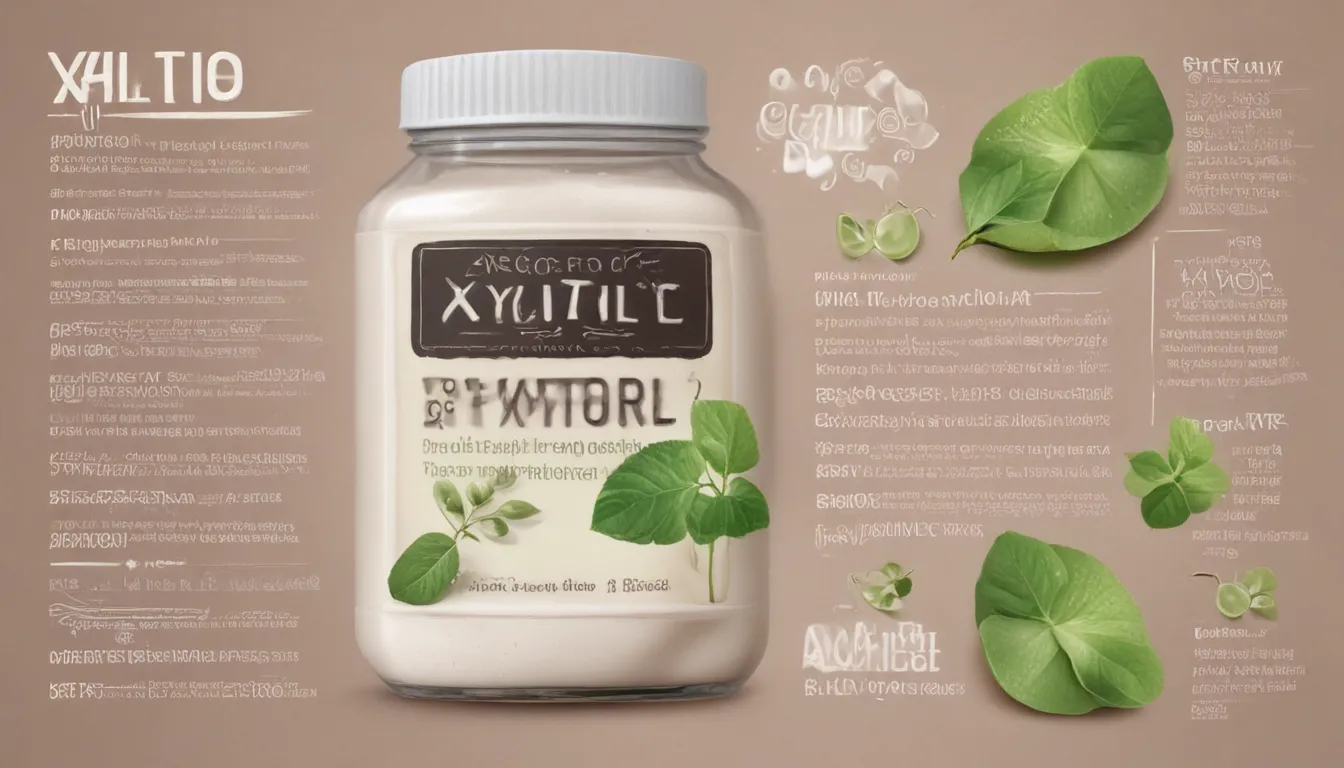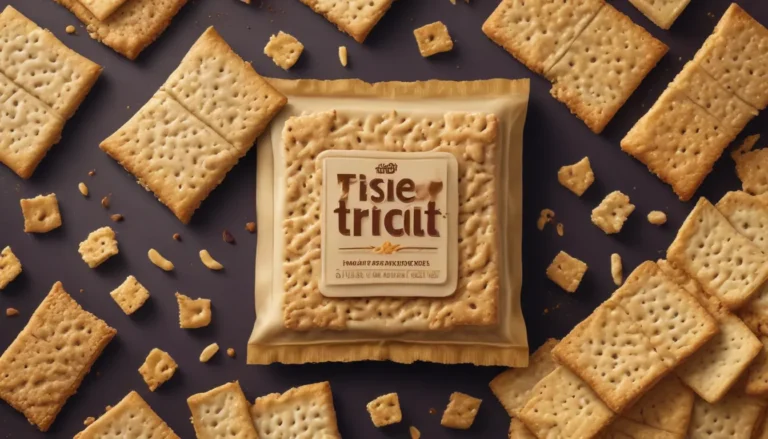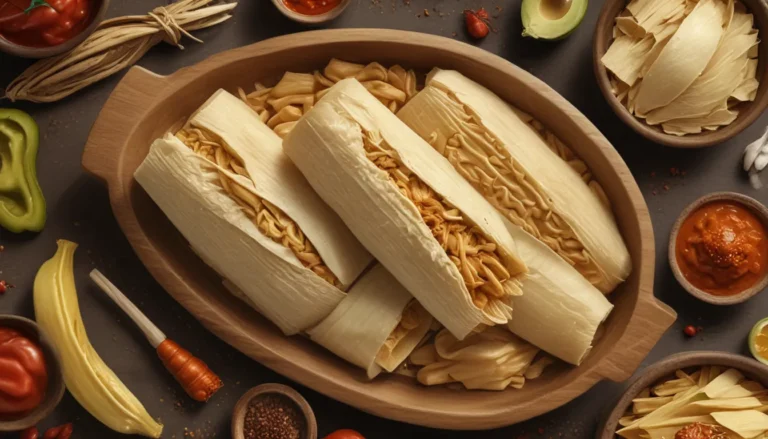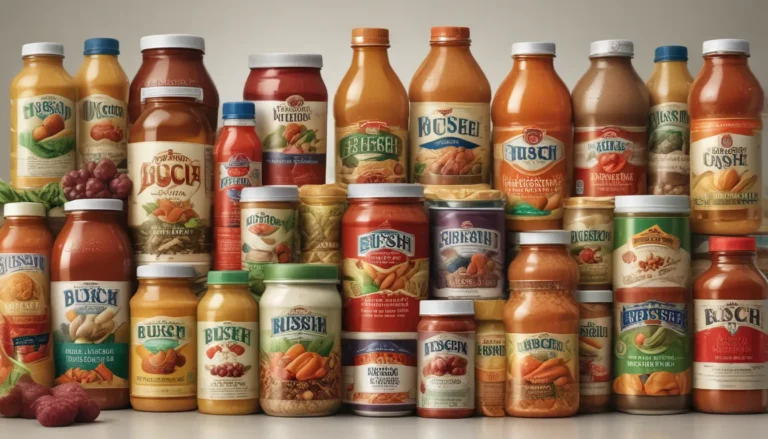The pictures in our articles might not always show exactly what the text is talking about. We use these images to make the article more interesting and eye-catching. They are there to add to the text, but not to replace it or show every detail.
In recent years, xylitol has gained popularity as a natural sugar substitute with numerous health benefits. Derived from plant sources like birch trees or corn cobs, xylitol is a low-calorie sweetener that appeals to those looking to reduce their sugar intake. This article delves into 20 xylitol nutrition facts, showcasing why this natural sweetener is an excellent choice for those seeking a healthy lifestyle.
Key Takeaways:
- Xylitol is a tooth-friendly sweetener with fewer calories than sugar, perfect for baking, dental health, and even preventing ear infections in children.
- Xylitol's low glycemic index makes it safe for individuals with diabetes, and its cooling effect makes it a popular ingredient in skincare products.
Understanding Xylitol:
Xylitol is a sugar alcohol extracted from various fruits and vegetables, such as birch tree bark, corn cobs, and berries. It serves as a popular alternative to sugar due to its low calorie content and dental benefits. Compared to regular sugar, xylitol boasts 40% fewer calories, making it an ideal choice for those aiming to reduce calorie intake.
The Health Benefits of Xylitol:
Dental Health:
Xylitol has proven to reduce the risk of tooth decay and cavities. By inhibiting the growth of bacteria in the mouth and preventing the production of harmful acids, xylitol promotes better oral health.
Glycemic Index:
With a glycemic index of 7, xylitol is a better option than sugar for individuals with diabetes or those following a low glycemic diet. It is absorbed slowly in the body, avoiding rapid spikes in blood sugar levels or insulin secretion.
Digestive Safety:
While generally safe for consumption by both children and adults, excessive intake of xylitol may lead to digestive issues like bloating or diarrhea in some individuals. Moderation is key when incorporating xylitol into your diet.
Baking and Cooking:
Xylitol is a popular sugar substitute in baking, lending its similar sweetness level to recipes without compromising taste. With a texture and bulk akin to sugar, xylitol serves as a simple replacement in recipes requiring sugar for volume and texture.
Dental Care Products:
Commonly referred to as "tooth-friendly sugar," xylitol is a key ingredient in oral health products like toothpaste, mouthwash, and chewing gum. Its cooling effect in the mouth makes it a sought-after component in various applications.
Using Xylitol in Daily Life:
Skincare Benefits:
The cooling properties of xylitol make it a favored ingredient in skincare products aimed at soothing and refreshing the skin. Its gentle cooling effect adds a unique touch to skincare routines.
Pet Safety:
Xylitol, while toxic to dogs due to its impact on insulin levels, is generally safe for pets like cats and rabbits. Caution should be exercised to prevent accidental ingestion by pets.
Sinus Relief:
Antimicrobial properties of xylitol make it a valuable ingredient in nasal sprays, aiding in relieving symptoms of sinusitis and reducing nasal congestion.
Candida Overgrowth:
Unlike sugar, xylitol does not promote the growth of candida yeast, making it a suitable choice for individuals combating candida overgrowth.
Plaque Prevention:
Regular consumption of xylitol has shown a decrease in the formation of plaque on teeth, leading to improved oral health and hygiene.
Conclusion:
Incorporating xylitol into your diet can bring numerous health benefits, from dental health support to aiding in weight management. By understanding the nutritional advantages of xylitol and consuming it in moderation, individuals can enjoy sweetness while maintaining a well-balanced diet. Consultation with healthcare professionals or dietitians is recommended before significant dietary changes.
FAQs:
- Is xylitol safe to consume?
-
Yes, xylitol is considered safe for consumption by most individuals, but excessive intake may lead to digestive discomfort.
-
Can xylitol be used by individuals with diabetes?
-
Yes, xylitol is a suitable alternative for individuals with diabetes due to its low glycemic index.
-
Is xylitol beneficial for dental health?
-
Yes, xylitol can reduce the risk of tooth decay and promote healthier teeth and gums.
-
Are there any side effects of consuming xylitol?
-
While generally safe, large amounts of xylitol may cause digestive issues in some individuals.
-
Can xylitol be used in cooking and baking?
-
Yes, xylitol can be used as a sugar substitute in cooking and baking with considerations for taste and texture.
-
Can xylitol be toxic to pets?
-
Yes, xylitol can be toxic to dogs and should be kept away from pets to prevent harm.
-
Is xylitol a natural sweetener?
-
Yes, xylitol is naturally occurring in many fruits and vegetables, but its commercial form is usually derived through a manufacturing process.
-
Can xylitol be used by individuals following a ketogenic diet?
- Yes, xylitol can be used in moderation by individuals following a ketogenic diet for its minimal impact on blood sugar levels.
Our commitment to providing reliable and engaging content ensures that each fact presented is contributed by real users for diverse insights. Trust in our dedication to quality and authenticity as you explore the benefits of xylitol for a healthier lifestyle.






